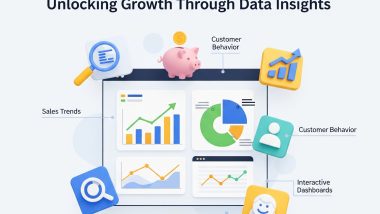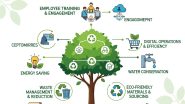Summary: Starting a new startup business? Here are nine business terms everyone should know.
Running a startup business involves constant learning. Whether you are starting a business for the first time or have a more established small business, knowing a list of financial terms can help you grow your business.
Being an entrepreneur also means being a learner throughout your life because there is always a new market trend, a new tool to explore, a new challenge to overcome, and a new vocabulary to understand.
Many entrepreneurs often work with the best business motivational speaker and feel they don’t need to equip themselves with the business terms. However, knowing these financial terms will help you understand and negotiate.
Here is a list of business terms and finance terms that will help you find your way to successful small business funding:
1. Accounts Payable
Accounts payable is a financial term representing your small business’s obligations to pay debts owed to suppliers, lenders, and creditors—depending upon the type of credit provided to the company by the lender. It is sometimes referred to as A/P or AP in short.
2. Accounts Receivable
Accounts receivable represents money owed to your small business by others for goods or services rendered. These accounts are labeled assets because they represent a legal obligation for the customer to pay you cash for their short-term debt. They are also known as A/R or AR.
3. Bookkeeping
Bookkeeping is a method of accounting used to time record all financial transactions for the business.
4. Capital
Capital in business terms refers to the overall wealth as demonstrated by its cash accounts, assets, and investments. Often called “fixed capital,” it refers to the long-term worth of the business. Capital can be tangible, like durable goods, buildings, and equipment, or intangible such as intellectual property. Understanding these terms can help you navigate better financial deals even if you are working with the best corporate trainer.
5. Working Capital
It consists of the financial resources necessary for maintaining the day-to-day operation of the business. Working capital, by definition, is the business’s cash on hand or instruments that you can convert to currency quickly. It should not be confused with fixed capital; working capital is another business finance term.
6. Cash Flow
Maintaining tight cash flow control is essential to any small business, especially if it is new since ready cash can be limited until the company begins to grow and produce more working capital.
The business finance term and definition of cash flow refers to the amount of operating cash that “flows” through the business and affects the business’s liquidity. Cash flow reports reflect activity for a specified period, usually one accounting period or one month.
7. Depreciation
Depreciation occurs due to wear and tear. So, the value of any asset can be said to depreciate when it loses some of that value in increments over time. Various depreciation methods are used by businesses to decrease the recorded value of assets. You can also learn a few essential industry-related terms from your business coach.
8. Fixed Asset
A fixed asset is a tangible, long-term asset used for the business and not expected to be sold or otherwise converted into cash during the current or upcoming fiscal year. Fixed assets are furniture, computer equipment, equipment, and real estate.
9. Intangible Asset
Non-physical business assets are considered intangible. These assets can be items like patents, goodwill, and intellectual property.
Whether you are an entrepreneur or not, the business terms mentioned above are essential for everyone. They will help you to understand the diverse concepts in the business world.
The idea of managing a business is more straightforward said than done, and we agree with you. This is why to help you move forward with your business goals, we at Bada Business offer an exclusive Business Coaching Program that comes with Foundation courses, specialized courses, and value-added courses.
To know more, visit: www.badabusiness.com
















